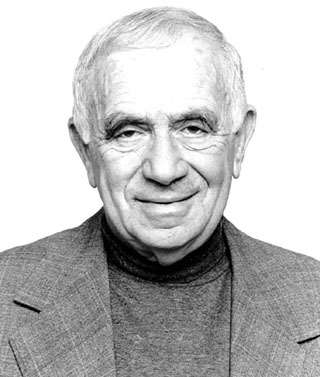Israel’s Greatest Modern Poet
March 22nd 2015
 Following in the Footsteps of Yehuda Amichai, Israel’s Greatest Modern Poet
Following in the Footsteps of Yehuda Amichai, Israel’s Greatest Modern Poet
Yehuda Amichai (1924-2000) is best known for writing romantic free verse in contemporary Hebrew, a language he learned as a child born to a Jewish family in Germany. He is considered by many to have been the greatest poet of contemporary Israel. Amichai’s work has been translated into some 40 languages, which may render him the most extensively translated Hebrew poet since King David. Amichai moved to Israel from Würzburg at the age of 11 and lived in Jerusalem for most of his life. To follow in his footsteps, we recommend visiting the following sites.
As a young man, Amichai served in the Palmach, the underground military organization that functioned in pre-State Palestine. A visit to the Palmach Museum in Tel Aviv can provide major insight into Amichai’s formative years. Visitors proceed through the experiential museum in small groups and, along the way, learn what a typical Palmach member went through between 1941, when the force was formed, and 1948, when the State of Israel was established.
After the War of Independence, Amichai began his studies in Bible and Hebrew Literature at the Hebrew University of Jerusalem. It was here that he published his first book of poetry in 1955. Take a tour of Mount Scopus, where the institution’s humanities departments are headquartered today and where Amichai commonly lectured as a guest later in life. Since Mount Scopus is the highest spot in the area, you can capture amazing views and photos. From the outlook, you’ll be able to see directly into the Old City of Jerusalem. The Botanical Gardens here are also worth exploring.
Amichai returned to military service during the Sinai War (1956) and the Yom Kippur War (1973). It’s worth visiting Mount Herzl, Israel’s military cemetery in West Jerusalem, where scores of soldiers who lost their lives in these and other Israeli wars are buried.
Next, take a walk through the Old City of Jerusalem and breathe in the atmosphere that inspired so much of Amichai’s work. He considered the life inside the walls of the Old City to be among his most important muses.
End your retrospective of Amichai’s life with dinner at Tmol Shilshom, a literary café that Amichai frequented and occasionally held readings. Tmol Shilshom is a Jerusalem landmark, filled with odd bookshelves, mismatched tables and chairs, serving plates decorated with literary quotes, free wifi and delectable sweet potato soup.











